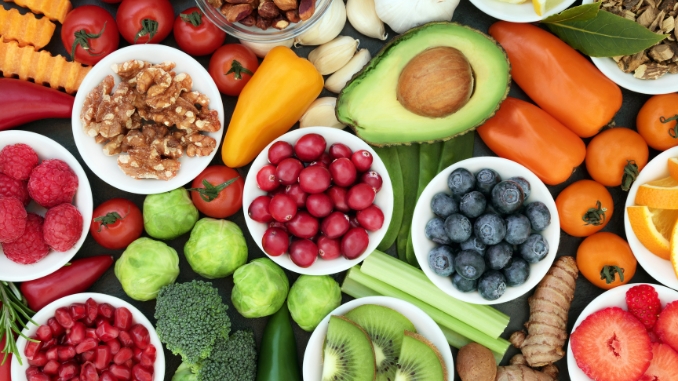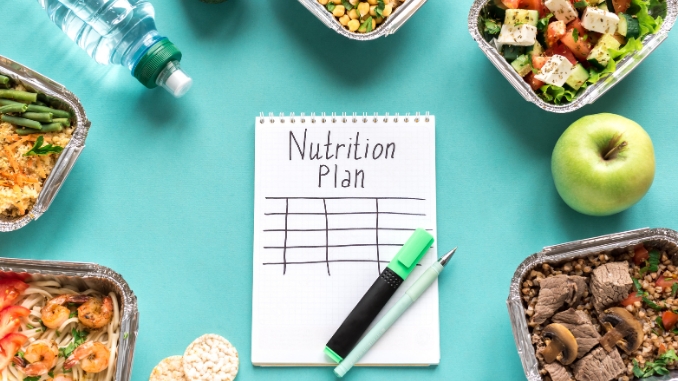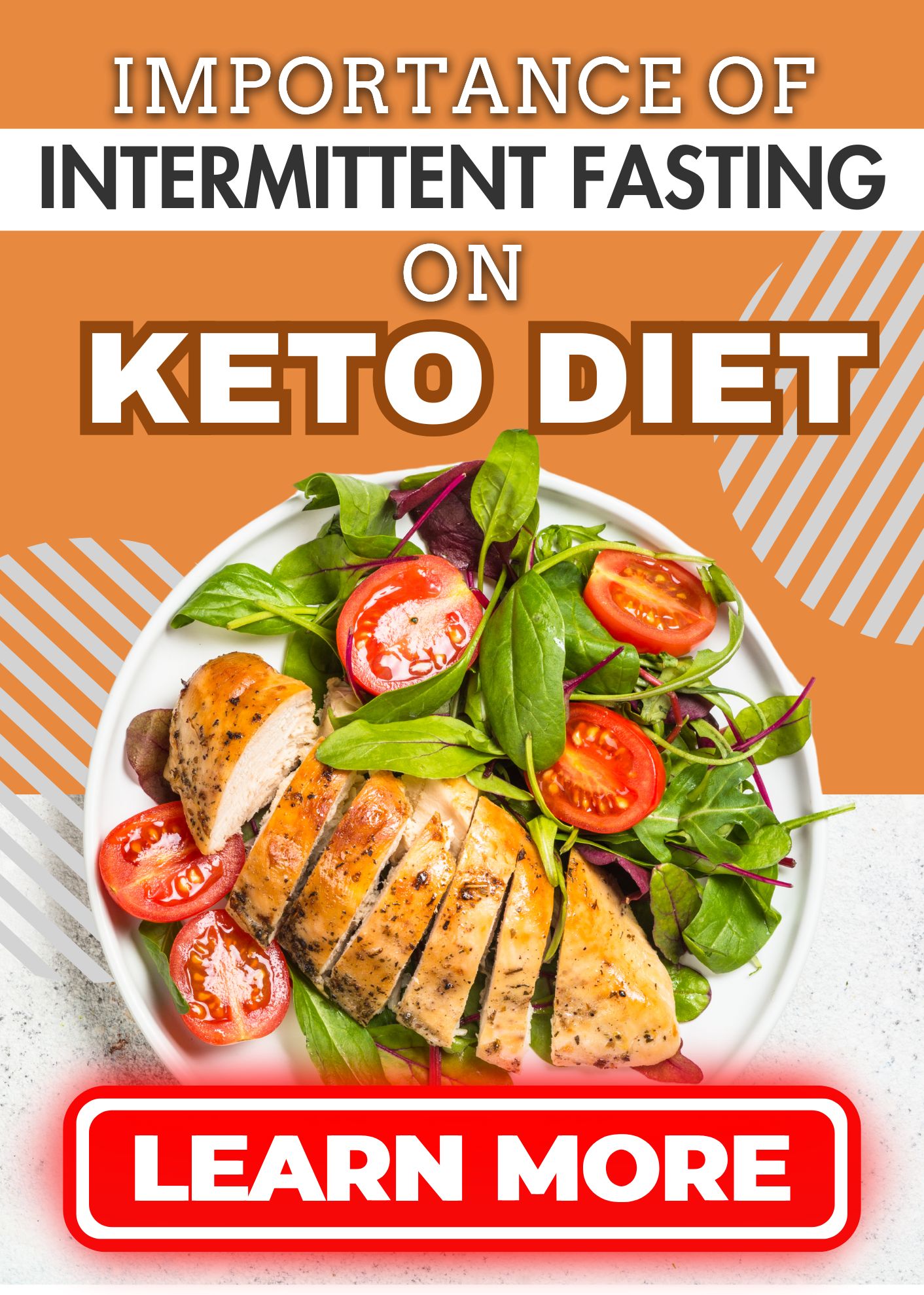7-Day GERD Diet Plan: Managing Acid Reflux Through Healthy Eating

Last updated on April 3rd, 2025 at 10:01 pm
Are you tired of dealing with the discomfort and pain of acid reflux, also known as gastroesophageal reflux? It's time to take control of your digestive health and banish those unwanted symptoms. With a specialized 7-day acid reflux diet plan, you can heal your gut and find relief from acid reflux once and for all. The program focuses on implementing dietary changes that promote a healthy digestive system, reducing the likelihood of acid reflux flare-ups. Moreover, you may check this 7-Day Gerd Diet Plan.
We understand that finding the proper diet for acid reflux can be overwhelming, but worry not – we've got you covered. Our expert recommendations and tips will help you quickly incorporate the right foods into your diet and make the necessary lifestyle modifications to improve your digestive health.
Moreover, whether you're a long-time sufferer or newly diagnosed, this 7-day GERD diet strategy will provide the tools and knowledge needed to heal and prevent experiencing acid reflux. So, say goodbye to the discomfort and embrace a life free from acid reflux with our scientifically backed and proven strategies.
Understanding GERD and its Impact on Gut Health
Gastroesophageal reflux disease (GERD) is a chronic state where stomach acid flows backward into the esophagus, causing irritation and discomfort. This condition can lead to heartburn, chest pain, regurgitation, and difficulty swallowing. Gastroesophageal reflux disease develops when the lower esophageal sphincter (LES), the muscle responsible for controlling stomach acid, weakens or inappropriately relaxes.
The impact of GERD on gut health goes beyond the uncomfortable symptoms. GERD can lead to more severe conditions such as esophagitis, ulcers, and even esophageal cancer if left untreated. Therefore, managing GERD through a healthy diet is essential for maintaining a balanced gut and preventing complications.
The Significance of a Balanced and Nutritious Diet for Managing GERD
A well-balanced diet is an important part of treating GERD symptoms and keeping your gut healthy. Certain foods can trigger GERD symptoms and worsen symptoms, while others can soothe the digestive system and reduce inflammation. Making the right food choices can support your gut health and minimize acid reflux flare-ups.
When planning a 7-day diet, it is essential to focus on the following principles:
1. Avoid Trigger Foods
Certain foods are known to trigger gastroesophageal reflux symptoms in individuals with GERD. These include spicy foods, fatty foods, citrus fruits, chocolate, coffee, and carbonated beverages. By eliminating or minimizing these trigger foods from your diet, you can significantly reduce the occurrence of acid reflux episodes.
2. Include Fiber-rich Foods
Fiber-in-rich foods, such as whole grains, fruits, vegetables, and legumes, can help promote healthy digestion and prevent constipation. Fiber soaks up water and adds bulk to the stool, preventing acid reflux by promoting regular bowel movements and reducing pressure on the LES.
3. Choose Lean Proteins
Opt for lean meats like poultry, fish, tofu, and beans instead of fatty meats. These high-quality proteins are easier to digest and less likely to trigger gastroesophageal reflux symptoms.
4. Stay Hydrated
Drinking enough water throughout the day helps keep your gut and stomach in good shape. Aim for at least eight glasses of water per day.
Following these dietary principles can support your gut health and minimizes acid reflux.
Foods to Include in a 7-Day GERD Diet Plan
It's essential to include foods that encourage healthy digestion and lessen the chance of acid reflux flare-ups. Here are some foods that you should have in your diet plan:
- Oatmeal: Oatmeal is an excellent choice for breakfast as it is high in fiber and helps absorb stomach acid. Opt for plain oatmeal and avoid adding high-acid fruits or sweeteners.
- Ginger: Ginger has usual anti-inflammatory properties that help soothe digestive systems. Consider using ginger in your food by adding it to smoothies, soups, or as a seasoning in dishes.
- Leafy Greens: Leafy greens like spinach, kale, and Swiss chard are packed with vitamins, fiber, and minerals. They are low in fat and can help regulate digestion, reducing the risk of acid reflux.
- Non-citrus Fruits: Opt for non-citrus fruits like bananas, apples, melons, and berries. These fruits are less acidic and are less likely to trigger acid reflux symptoms.
- Lean Proteins: Pick lean proteins like skinless chicken breast, turkey, fish, and tofu. These protein sources are easier to digest and less likely to cause acid reflux.
- Whole Grains: Whole grains similar to brown rice, quinoa, and whole wheat bread are abundant in fiber and can help facilitate regular digestion.
Including these foods in your 7-day GERD diet strategy will give your body essential nutrients while reducing the risk of gastroesophageal reflux symptoms.
Foods to Avoid
Sidestepping certain foods that can trigger acid reflux is significant in managing GERD symptoms effectively. Here are some foods that you should avoid in your 7-day GERD diet strategy:
- Spicy Food: Spicy foods can irritate the esophagus and trigger acid reflux symptoms. Avoid foods seasoned with hot peppers, chili powder, or spicy sauces.
- Fatty Food: Fatty foods, such as fried foods, high-fat meats, and full-fat dairy products, can stimulate the LES and trigger acid reflux. Opt for leaner options and reduce your intake of saturated fats.
- Citrus Fruits: Citrus fruits like oranges, lemons, grapefruits, and tomatoes are foods that are highly acidic and can worsen gastroesophageal reflux. Limit your consumption of these fruits or choose non-citrus alternatives.
- Chocolate: Chocolate contains theobromine, which can relax the LES and enhance the chance of acid reflux. Avoid chocolate and peanut butter and opt for healthier dessert options.
- Caffeinated Beverages: Coffee, tea, and other caffeinated drinks can neutralize stomach acid and relax the LES. Switch to decaffeinated options or herbal teas that are gentle on the digestive system.
- Carbonated Beverages: Carbonated beverages, including soda and sparkling water, can cause bloating and increase the pressure on the LES, leading to acid reflux. Stick to still water or herbal teas.
Avoiding these trigger foods can reduce gastroesophageal reflux symptoms and promote a healthier gut.
Meal Planning and Preparation for the 7-Day GERD Diet Plan
Proper meal planning and preparation are essential for successfully implementing a 7-day GERD diet strategy. Here are some tips to help you stay organized and make the most out of your diet plan:
1st Day: Starting Right
- Breakfast- Kickstart your day with a bowl of oatmeal, sliced banana, and a drizzle of honey. Oatmeal's high fiber content helps absorb stomach acid, while bananas are gentle on the stomach.
- Lunch- Opt for a grilled chicken salad with mixed greens, cucumbers, and tomatoes. Avoid creamy dressings; instead, choose a light vinaigrette to prevent acid reflux triggers.
- Snack- Munch on a handful of almonds. Their natural oils can soothe the esophagus and provide a healthy source of nutrients.
- Dinner- Enjoy baked salmon with steamed asparagus and quinoa. Salmon is omega-3-rich, which has anti-inflammatory properties that can benefit GERD sufferers.
2nd Day: Balancing Flavors and Digestion
- Breakfast- Have a Greek yogurt parfait with fresh berries and a sprinkle of granola. Greek yogurt is probiotic-rich and can support gut health.
- Lunch- Delight in a turkey and avocado wrap using whole wheat tortillas. Avocado's healthy fats can help reduce stomach inflammation.
- Snack- Nibble on baby carrots and celery sticks with hummus. These veggies are low-acid, and the hummus provides a creamy, flavorful dip.
- Dinner- Savor a tofu stir-fry with bell peppers, broccoli, and brown rice. Tofu is an excellent plant-based protein that's easy on the stomach.
3rd Day: Incorporating Variety
- Breakfast- Indulge in a smoothie made with spinach, frozen berries, and a scoop of protein powder. Blend it with almond milk for a creamy texture.
- Lunch- Treat yourself to a quinoa salad with chickpeas, cherry tomatoes, and fat-free cream cheese. Quinoa is good on the stomach and packed with nutrients.
- Snack- Enjoy a handful of unsalted pretzels. They're low in fat and can help alleviate gastroesophageal reflux symptoms.
- Dinner- Relish a grilled vegetable and goat cheese pizza on a whole wheat crust. Opt for a thin layer of sauce to avoid excessive acidity.
4th Day: Emphasizing Digestive Ease
- Breakfast- Have a slice of whole wheat toast with scrambled eggs and sautéed spinach. Eggs provide protein, while spinach is easy to digest.
- Lunch- Dig into a lentil soup with a side of whole-grain crackers. Lentils are rich in fiber, which aids digestion.
- Snack- Slice up a ripe papaya. This tropical fruit contains enzymes that promote healthy digestion.
- Dinner- Feast on a grilled chicken breast with sweet potatoes and green beans. Lean protein and non-acidic vegetables make for a soothing meal.
5th Day: Nourishing and Soothing
- Breakfast- Create a breakfast bowl with brown rice, sliced peaches, and a sprinkle of cinnamon. Peaches are low-acid and high in fiber.
- Lunch- Enjoy a tuna salad lettuce wrap with chopped celery and a squeeze of lemon. Tuna offers a lean protein option.
- Snack- Dip whole wheat pita bread into tzatziki sauce. This creamy dip is made from yogurt and cucumber.
- Dinner- Delight in baked white fish with quinoa and roasted Brussels sprouts. Whitefish is gentle on the stomach and easy to digest.
6th Day: Mindful Eating
- Breakfast- Blend a smoothie with kale, pineapple, and coconut water. Pineapple contains bromelain that aids digestion.
- Lunch- Savor a roasted vegetable and hummus wrap using a spinach tortilla. Roasted veggies are less likely to trigger acid reflux.
- Snack- Munch on a handful of mixed nuts. They provide healthy fats and protein.
- Dinner- Relish a stuffed bell pepper with lean ground turkey, brown rice, and tomato sauce. This well-balanced meal is unlikely to cause discomfort.
7th Day: Wrapping Up the Week
- Breakfast- Have whole-grain pancakes topped with berries and a dollop of Greek yogurt. These pancakes are light and nutritious.
- Lunch- Opt for a grain bowl with black beans, corn, and diced avocado. Black beans offer protein without acidity.
- Snack- Enjoy a slice of watermelon. Its high water content can help soothe acid reflux symptoms.
- Dinner- Indulge in a vegetable stir-fry with tofu and buckwheat noodles. Buckwheat is gentle on the stomach and provides a hearty texture.
By incorporating these meal planning and preparation tips, you can set yourself up for success in following your 7-day GERD diet strategy and effectively manage your gastroesophageal reflux symptoms.
Lifestyle Changes to Support Gut Health and Reduce Acid Reflux Symptoms
In addition to following a 7-day GERD diet strategy, lifestyle changes can further support your gut health and reduce acid reflux symptoms.
Here are some lifestyle modifications to consider:
- Maintain a Healthy Weight: Excess weight can increase the pressure on the LES, leading to acid reflux. A balanced diet and daily exercise can result in weight loss and significantly improve your gastroesophageal reflux symptoms if you are overweight.
- Elevate Your Bed: Tilting your bed by 6 to 8 inches can prevent stomach acid from moving back into the esophagus during sleep. This practice can lessen the frequency and intensity of acid reflux episodes at night.
- Avoid Eating Before Bed: Make sure to have at least 2 to 3 hours intervals between your last meal and bedtime, allowing your stomach sufficient time to digest. This practice minimizes the chances of experiencing acid reflux when lying down.
- Manage Stress: Stress can worsen acid reflux. Integrate stress management techniques like meditation, deep breathing exercises, and consistent physical activity into your routine to lower stress levels and foster gut health.
- Quit Smoking: Smoking can weaken the LES and increase the risk of acid reflux. Quitting smoking benefits your overall health and helps alleviate gastroesophageal reflux.
By implementing these lifestyle changes alongside your 7-day GERD diet strategy, you can further support your digestive health and reduce the occurrence of acid reflux.
Tracking and Monitoring Your Progress on the 7-Day GERD Diet Plan
It is important to track and monitor your progress on the 7-day GERD diet strategy to notice any patterns or triggers that may be causing or exacerbating your acid reflux.
Here are some steps to help you track your progress:
- Keep a Food Diary: Document your meals, snacks, and any symptoms you experience throughout the day. This can help you recognize foods that trigger symptoms and make necessary adjustments to your diet plan.
- Monitor Symptoms: Keep track of the frequency and severity of your acid reflux. Note any improvements or worsening of symptoms to gauge the effectiveness of your diet plan.
- Consult with a Healthcare Professional: If you are not experiencing significant improvements or if your symptoms worsen, consult a healthcare professional. They can provide additional guidance and support to help manage your acid reflux symptoms.
Tracking and monitoring your progress helps you to create informed decisions about your diet and lifestyle choices, ensuring that you are on the right track to managing your acid reflux effectively.
Tips for Long-term Management of GERD through Diet and Lifestyle
While the 7-day GERD diet strategy provides a great starting point, adopting a long-term approach to managing your acid reflux is essential.
Here are some tips for long-term management of GERD:
- Individualize Your Diet: Everyone's triggers and tolerances are different. Pay attention to your body's response to certain foods and adjust your diet accordingly.
- Practice Mindful Eating: Chew your food thoroughly, eat slowly, and focus on your body's hunger and fullness cues. Mindful eating promotes optimal digestion and can help prevent overeating.
- Stay Active: Regular physical activity can help regulate digestion and maintain a healthy weight, reducing the risk of acid reflux. Strive for at least 30 minutes of moderate exercise most days of the week.
- Stay Hydrated: Drinking enough water throughout the day can promote optimal digestion and prevent dehydration, which can exacerbate acid reflux.
- Seek Professional Support: If you find it challenging to manage your acid reflux independently, consider taking advice from a healthcare professional. They can offer customized suggestions and assistance to aid you in achieving lasting results.
By integrating these suggestions into your daily regimen, you can uphold excellent gut health and proficiently handle your acid reflux in the long term.
Taking Control of Your Gut Health
Acid reflux can be a debilitating condition that affects your quality of life. However, with a well-planned 7-day GERD diet plan, you can effectively handle your symptoms and promote optimal gut health. By understanding the impact of GERD on your digestive system and making dietary and lifestyle changes, you can banish acid reflux and embrace a life free from discomfort.
Seek advice and support from a healthcare professional. With dedication and consistency, you can take control of your gut health and enjoy a life free from acid reflux.
Rick Kaselj MS, is a leading kinesiologist and injury specialist as well as co-creator of the best-selling Unlock Your Hip Flexors program. Rick creates exercise programs that help people heal injuries and eliminate pain, so they can go back to living a full, active, healthy life.












